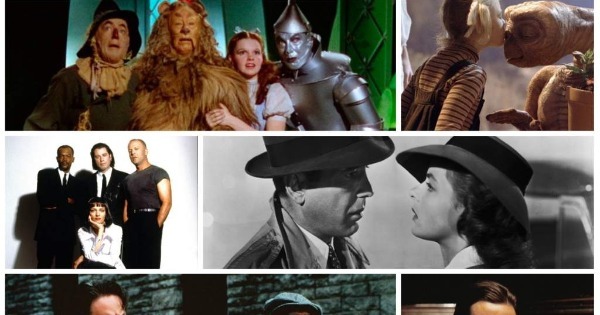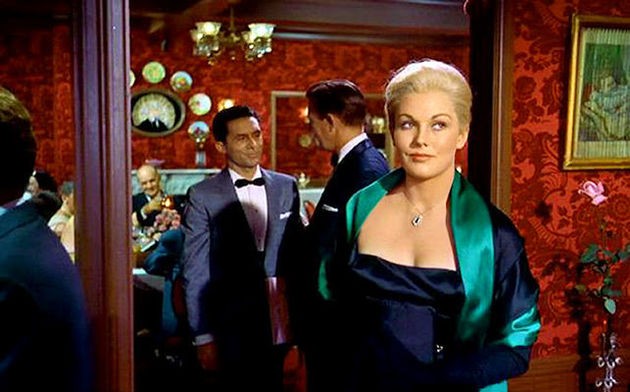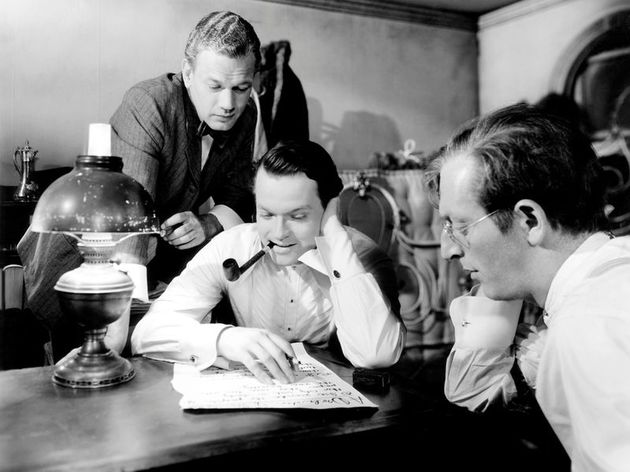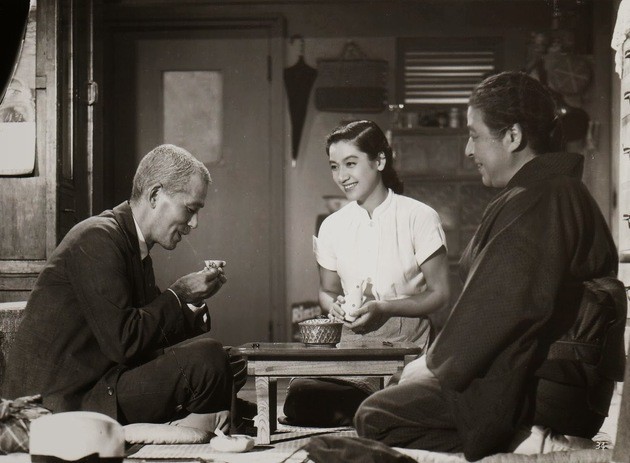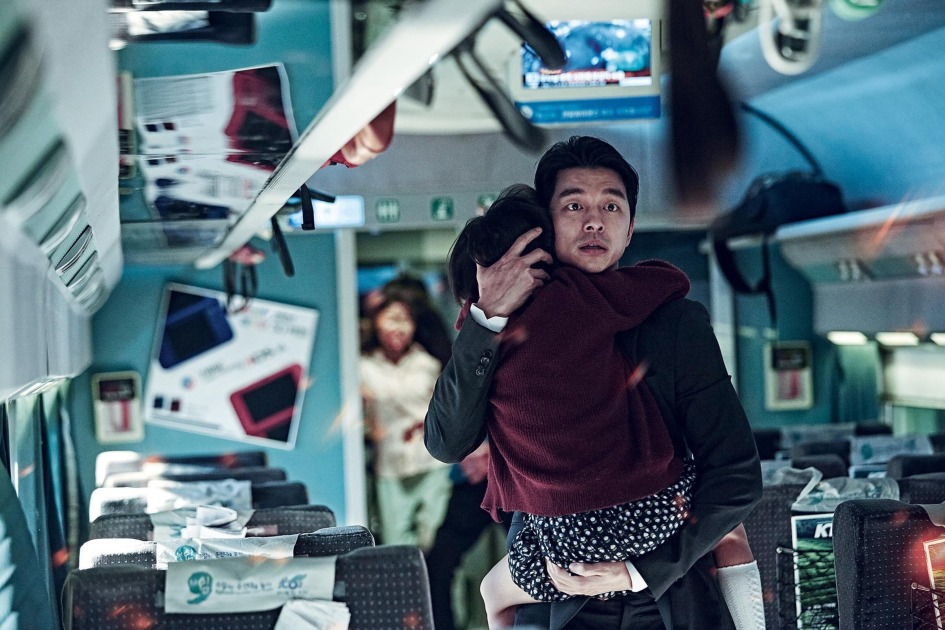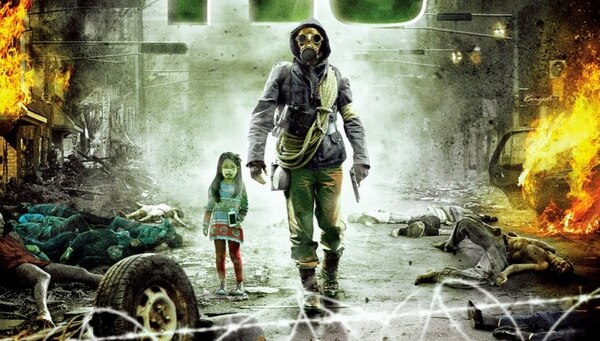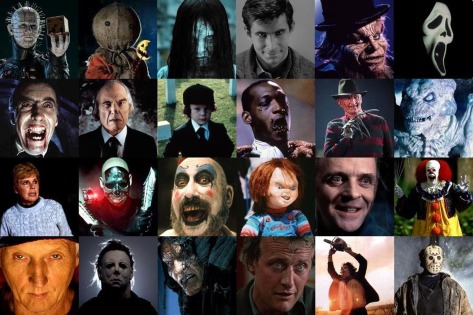We all have our favorite movies, those that we love to review over and over again and that are part of our lives in one way or another. Making a list of the best films in the history of Seventh Art is an almost suicidal undertaking, because some title will always be missing or left over, depending on our personal tastes and weaknesses. We have dared to select 70 titles that we believe should be, yes or yes, in any such list, either for their purely artistic values or for their influence or impact on the history of cinema.
Hopefully you agree with us and enjoy this review. Let the curtain open!
1. Vertigo (1958)
Director: Alfred Hitchcok
ahead of its time and that only years after its premiere was claimed as the masterpiece that it is. Its power of fascination continues to disturb viewers and filmmakers (tell De Palma) and its perfect balance between ethics and aesthetics is perfect to tell this surreal story that masterfully mixes mystery with romanticism.
Most likely, Hitchcock’s perfect work.
2. Citizen Kane (1941)
Director: Orson Welles
Always at the top of this type of list, Citizen Kane , without being the best film by its director, it is undeniable that it has emerged as one of the most important and influential works in the history of Seventh Art .
Directed, co-written, starred and co-produced by Welles, it was an unusual case of total creative freedom.
Xanadú. Rosebud. A maze with no way out and a revolution in cinematographic aesthetics.
3. Tales of Tokyo (1953)
Director: Yasujirô Ozu
] A simple plot for a drama that deals with universal feelings: the love between parents and children, the irremediable passage of time, forgetfulness, the selfishness of children …
Life through stillness and a devastating portrait of the human and the lost inheritances.
4. The rule of the game (1939)
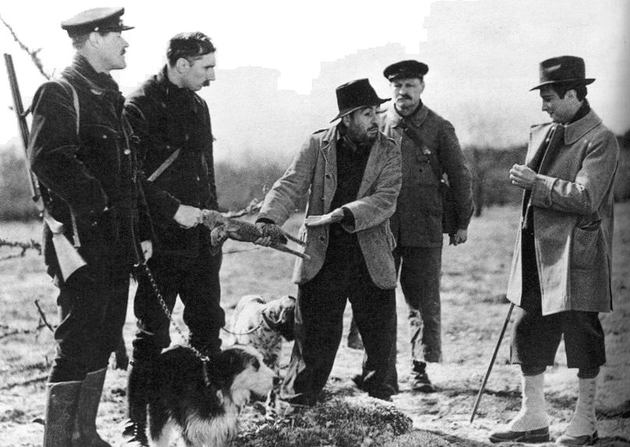
Director: Jean Renoir
[ 19459002] A brilliant portrait of the human condition, of terrible appearances and of the lowest passions.
None of us escaped the game of farce and appearance; we are all liars who play pretend pretending to be educated.
5. 2001: A Space Odyssey (1968)
Director: Stanley Kubrick [1945900] ]
Nobody disputes its title of top work of the science fiction genre, but 2001 has always divided the public, who adore or detest it (calling it boring).
The characters’ deliberate emotional chill and aesthetics ensure that the only truly moving character is not human, but a computer, the remembered HAL 9000, an emotional intelligence who becomes the true hero of the role.
6. The Searchers (1956)
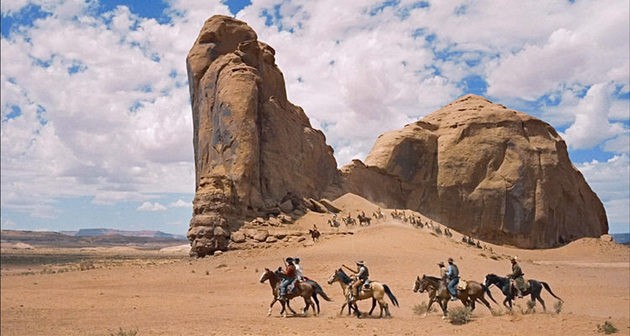
Director: John Ford
Known as More heart than hate in Latin America and Centaurs of the desert in Spain. Violence, revenge, redemption, road movie within a western and the best interpretation of John Wayne.
The film, a journey and a closing circle, hides all the great elements of Fordian works: the portrait of the human condition, poetry, the epic and a clean and honest narration.
7. The passion of Joan of Arc (1927)
Director: Carl Dreyer [1945300 ]
The photography of this film is its main asset and one of the main reasons why it is considered a masterpiece of silent cinema (and cinema in general).
Her powerful images, especially close-ups of the protagonist, and her prodigious sense of rhythm make her a true cinematic experience.
8. 8 1/2 (1963)
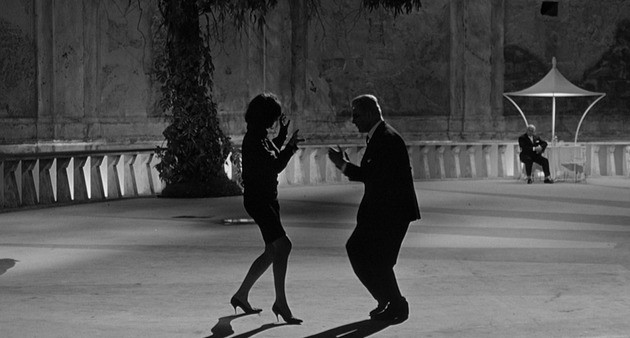
Director: Federico Fellini
19459002] A very personal jewel of its director, who perfectly reflects his unique and unrepeatable universe.
The lack of inspiration of its protagonist ends up constituting the work itself, a timeless imaginative anarchy where reality and fantasy mix and where the Guido Anselmi embodied by Matroianni embodies the most explicit of the alter egos from the director.
9. The Battleship Potemkin (1925)
Director: 1945] Sergei Eisenstein [1945] ] One of the key films in the development of narrative in cinema, as well as editing and editing. In the famous scene of the Odessa staircase there are more than 170 shots linked by the montage that manage to provoke sensations that go beyond the succession of all those shots, reaching a visual power that would mark countless later directors.
It retains its narrative nerve and its potential to thrill viewers even today and is considered by some to be the best movie ever.
10. L’Atalante (1934)
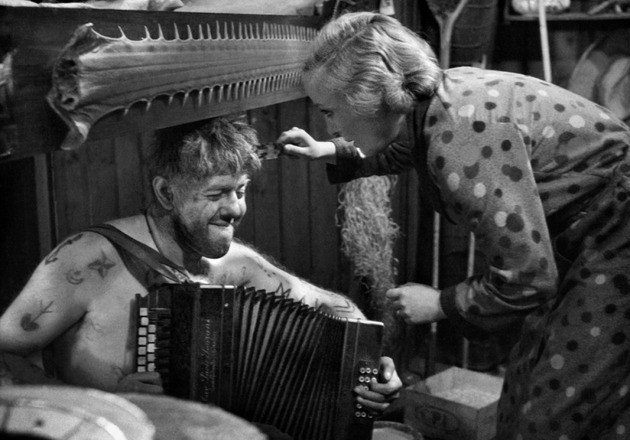
Director: Jean Vigo
] With an allegorical and poetic language and a daring sensuality for the time, Vigo’s film strikes a perfect balance between comedy and drama, reality and fantasy, as well as being a clear denunciation of problems such as unemployment, ignorance and Social inequality.
Full of magic and vitality, symbolism and details, L’Atalante summarizes all the characteristics of Vigo’s style, whose visual and narrative lyricism made him the inspirer of the movements of the French cinematographic avant-garde of the 50s and 60s. Poetic and naturalistic realism together with an anarchic discourse make this film an immense and profound experience that was totally misunderstood at the time of its release.
11. At the end of the break (1960)
[1945923]
Director: Jean-Luc Godard [ 19459003]
À bout de souffle is one of the emblematic titles of the Nouvelle Vague. Based on a script by Truffaut, she surprised by resorting to techniques not used in conventional cinema: the use of the camera in hand (inherited from Italian neo-realism), the shots of the shot, the protagonists speaking directly to the camera, acting as an accomplice to the viewer …
A revolutionary and meta-narrative film, it breaks with the classic formulation of invisible montage and continuity to tell a story about the hostility of modern society and the cruel impassibility of love passion.
12. The seven samurai (1954)
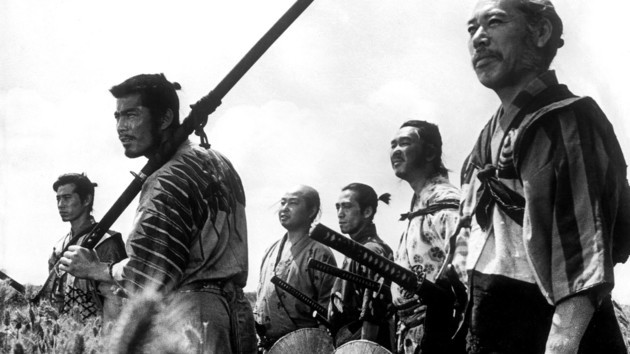
Director: Akira Kurosawa ]
Kurosawa’s film is one of the most influential of all time, having left a deep mark on pop culture, from George Lucas’ Star Wars to the legendary television series [ 19459013] The A-Team.
Kurosawa does not allow himself a single static shot throughout the film, culminating in the final battle, tremendously modern in terms of montage and planning. A full-blown modern classic.
13. Apocalypse Now (1979)
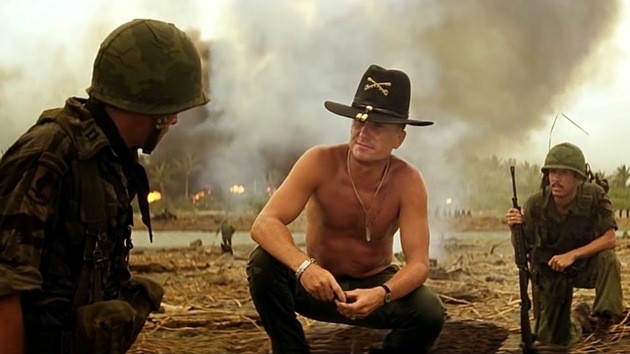
Director: Francis Ford Coppola
] An existentialist journey to the abysses of madness and despair. War as an obsession, where Willard and Kurtz are two sides of the same coin.
Outrageous in every respect, it is an overwhelming (but wonderful) cinematic experience about the dread and nonsense of war, which almost ruined Coppola but is arguably his best film.
14. Person
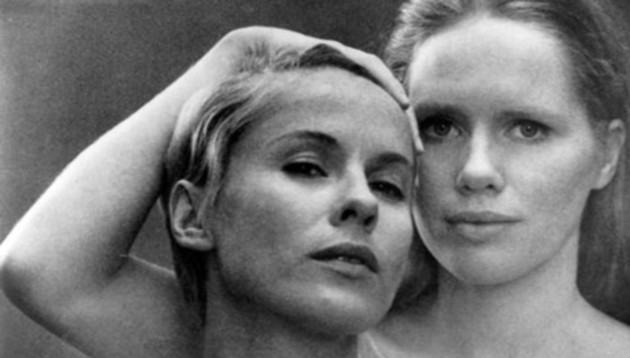
Director: Ingmar Bergman
Exploration Of the two personalities of the same woman, masterfully played by the filmmaker’s two muses (Bibi Anderson and Liv Ulman) is one of the most beautiful, disturbing, personal and fascinating films of the seventh art.
Bergman creates a work based on illusion and artifice to talk about social masks and the decomposition and fragility of identity.
15. Singing in the Rain (1951)
Director: Stanley Donen & Gene Kelly [ 19459003]
This film talks about cinema and it does so with love and overflowing joy that ends up spreading thanks to its music and songs to remember. A comedy full of magic and feeling, which is already a living history of celluloid.
For posterity, Gene Kelly dancing and pointing her umbrella at the sky, perfect image of optimism and happiness.
16. The Adventure
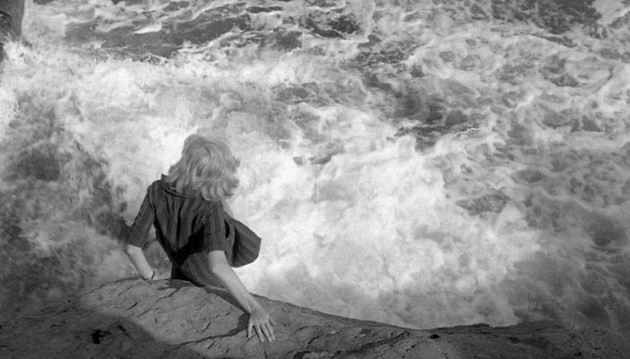
Director: Michelangelo Antonioni
Key milestones of cinematic modernity, this groundbreaking and revolutionary film is a brutally dry account of human relations and lack of communication.
Abstract in its content, it is an absolutely fascinating work that offers a stark and existentialist approach to the impossibility of not harming the people we love most.
17. The Godfather (1972)
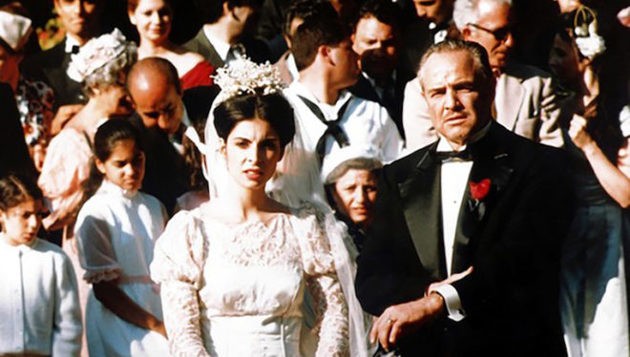
Director: Francis Ford Coppola
19459002] ] An essential masterpiece of contemporary cinema, a perfect synthesis between auteur cinema and studio-driven commercial cinema.
Family account of a great tragedy where film noir reaches Shakespearean resonances. Accompanied by the mythical soundtrack by Nino Rota, Coppola criticizes the American system, where the Mafia finds shelter in the corruption of senators, judges and police.
18. Ordet (1955)
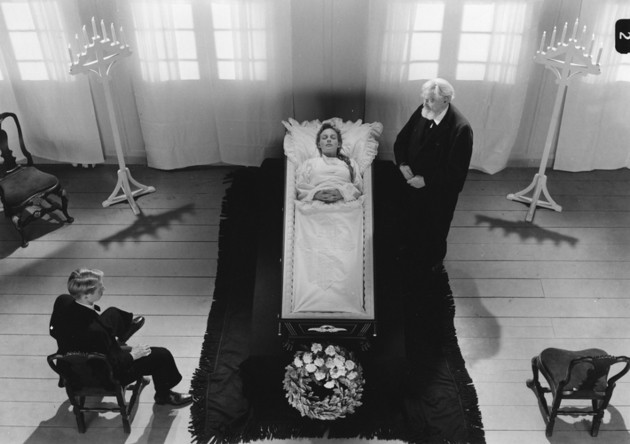
Director: Carl Dreyer
[45 19459013] Ordet (The Word) is one of the most beautiful and complex films ever shot, a deep reflection on faith and the different positions of individuals towards it.
Reason vs. Faith, Science vs. Dogma, Tolerance vs. Fanaticism, Humanism vs. Idealism. The millimetric planning of each plane and the sobriety of the sets (bordering on abstraction) are some of the characteristics of Dreyer’s style, which reaches its most absolute purification here.
19. In the mood for love (2000)
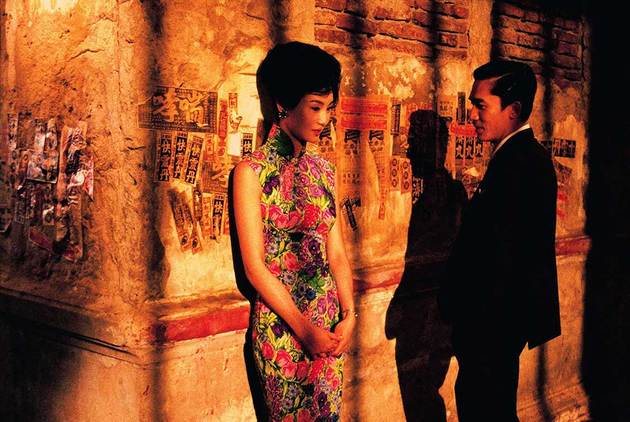
Director: Wong Kar-wai [ 19459003]
A precious and subtle romantic drama that is the pinnacle of its director’s filmography. The poetic perfection of this film is based on its ability to “catch” time and subject it according to the mood of its protagonists.
To reflect inner and emotional time, images and music shake hands almost perfectly. The characters debate between fidelity and the love impulse, trying to hide their feelings, suffering the disappointments of love and rehearsing (painful) disappointments and farewells. The time that was gone and the one that could have been lived.
20. Rashomon (1950)
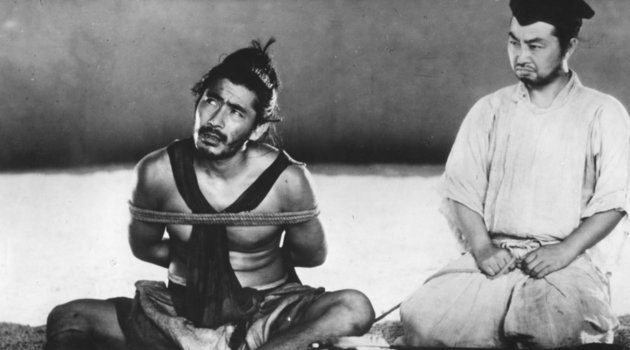
Director: Akira Kurosawa
Kurosawa’s first masterpiece, a moral fable about relativism and the philosophy of human acts. The questioning of the reality of our acts (influence in innumerable later films, even talking about the “Rashomon Effect”) makes the viewer have to cast their own gaze on the same fact that can have multiple interpretations.
Objectivity is questioned by the narrative structure itself, which makes the truth impossible to elucidate. Faced with the impossibility of an epistemic and objective truth of the facts, the “moral truth” is the last haven of hope and confidence.
21. Mulholland Drive
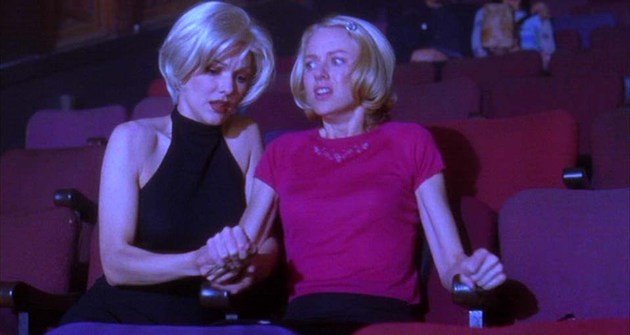
Director: David Lynch
women in danger, dreams, sensuality, unsolvable riddles, twisted humor, gloomy atmospheres, characters out of a nightmare …
A dreamlike and fascinating maze that talks about the search for identity and about the descent into hell of the soul (and Hollywood).
22. The Godfather II
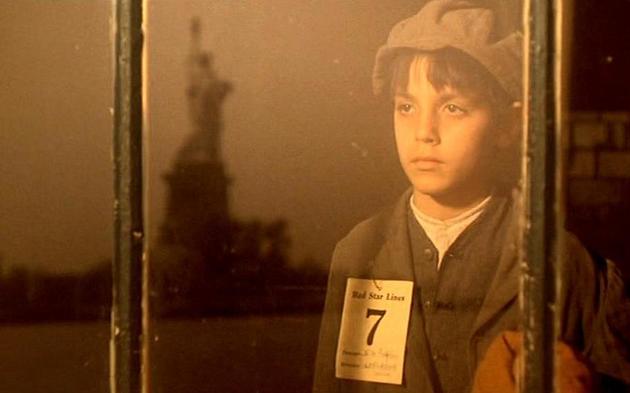
Director: Francis Ford Coppola
Something this film showed is that second parts can be good. To this day, The Godfather part 2 is given as an example that a sequel may even be better than the original, and that in this case the bar was very high. Here we not only talk about how it surpasses the first in form and content, but it also took many awards and was considered one of the best films in history.
If The Godfather revolved around Michael Corleone’s initiation rite in the family business, this second part represents the definitive fall of the protagonist’s family relationships and his isolation from all affective figures around you. At the same time, we attend the childhood and youth of his father, Vito Corleone, who is gradually building his American dream until he becomes the leader of organized crime in New York and forms a family that becomes a pillar of his way of life. lifetime.
23. Taxi Driver (1976)
Director: Martin Scorsese [1945
Hopeless story of extreme redemption and urban loneliness, De Niro’s Travis Bickle is embroiled in a tragic and fierce existentialism that make him one of the most representative Scorsesian characters, embodying obsession and violence so typical of the filmmaker.
I wish a rain fell on this city and cleaned all this scum.
24. Bicycle thief (1948)
Director: Vittorio de Sica
[ 19459002] Summit of Italian neorealism, the film masterfully portrays the misfortunes of the postwar period, but with a plot nudity, emotional intensity and a narrative structure so clean and simple that they turn this reflection on helplessness into a lucid song of hope.
25. Metropolis (1929)
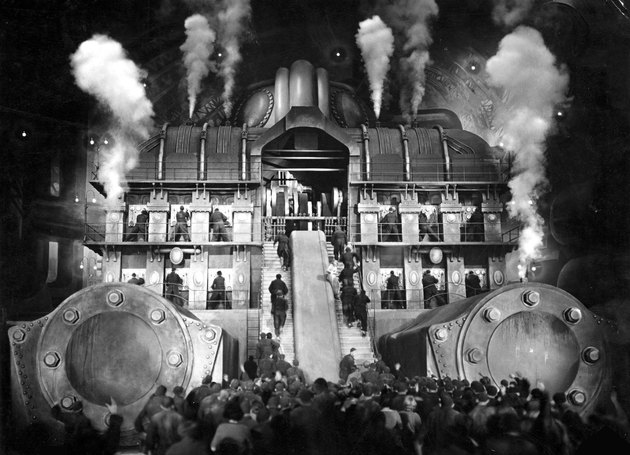
Director: Fritz Lang
19459002 of the top works of cinema, the German expressionist movement and fantastic cinema.
A hopeless futuristic dystopia with overwhelming visual power and a capacity for fascination that has been able to endure in the collective imagination until today.
26. Psychosis (1960)
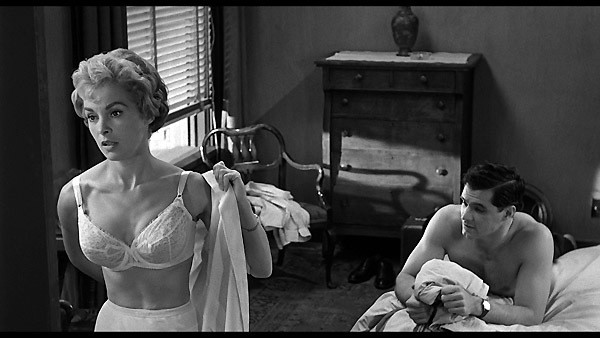
Director: Alfred Hitchcock
An indisputable teacher, she stands out for the technical perfection of all her elements, for the penetrating psychological profile of her characters and, above all, for the absorbing and suggestive play of complicity between the director and the viewer.
Pure and simple cinema and a masterful demonstration of how to mount an exciting intrigue from the simplest of devices.
27. The 400 blows (1959)
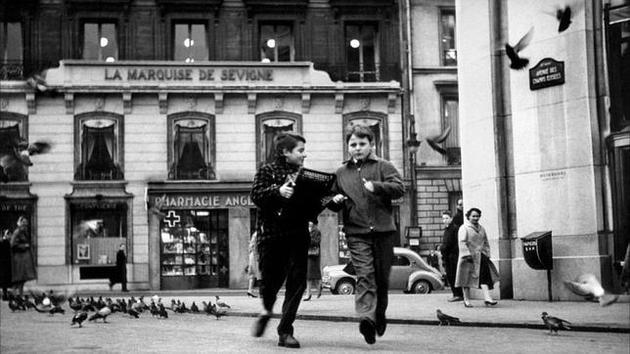
Director: François Truffaut
] Truffaut’s first feature film and one of the most emblematic titles of his filmography, inspired by his own childhood and raised in a relaxed tone of observation.
The film uses the perspective of a child to demonstrate the harshness of childhood, moments of rebellion, the imbalance between illusions and reality, all to carry out an important social criticism that generates a special sensitivity in the viewer.
28. La Dolce Vita (1960)
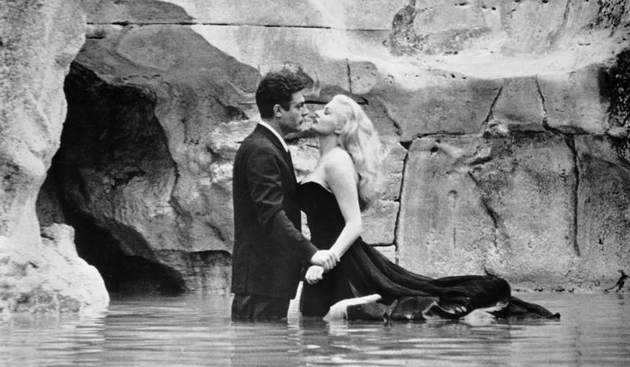
Director: Federico Fellini
] Fellini’s crucial work and the beginning of his most fruitful stage, as well as a cinematographic milestone. Starting from a series of extreme situations, it offers a sharp satire of the Roman bourgeoisie and its excesses, as well as the living people who swarm around it.
Impeccable invoice, elegant and sophisticated staging and a very careful photograph to portray the banalities and efforts to get out of the boredom of the wealthy people of that time.
29. Some Like It Hot (1959)
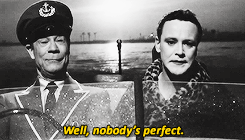
Director: Billy Wilder
[ 19459002] Some Like It Hot ( One Eva and two Adanes and Some prefer to burn in Latin America, With skirts already crazy in Spain ) is part of the history of cinema and cinephile memory around the world.
An explosive combination of gangsters and cross-dressing that only a genius like Wilder could perform, uniting brilliance and cynicism in one of the best comedy scripts ever written.
30. Gertrud (1964)
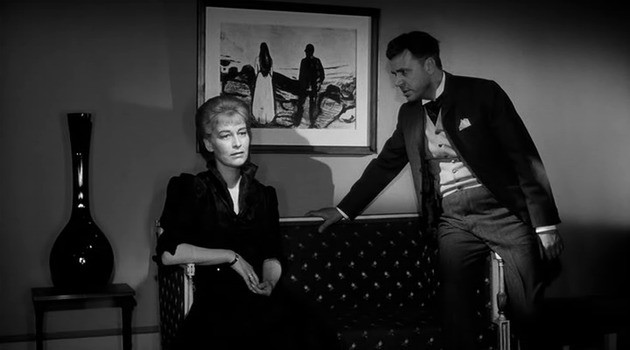
Director: Carl Dreyer
19459013] Gertrud is the latest film by one of the greatest masters in film history, a masterpiece of his filmography and seventh art. Starting from a refined and ascetic staging, Dreyer manages to achieve a love mysticism close to reverie.
The film’s Gertrud aspires to a love with a capital letter that men cannot give her, which makes her a kind of romantic idealist condemned to the irremediable disenchantment of reality.
31. Playtime (1967)
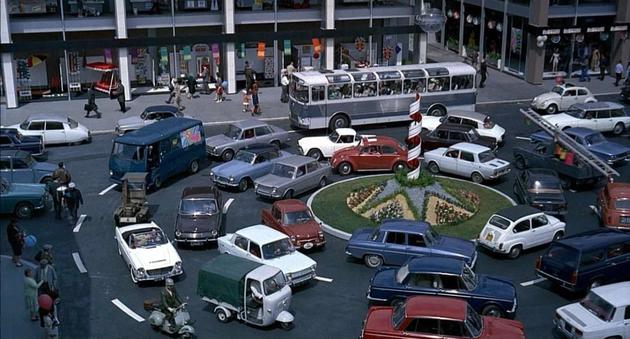
Director: Jacques Tati
19459013] Playtime , in its waste of ideas where no object escapes the author’s comedy, is Tati’s most experimental film, ambitious, mocking and masterful.
Wild situations, wonderful photography, superlative sound treatment … all this to make a critique of modern life.
32. City Lights (1931)
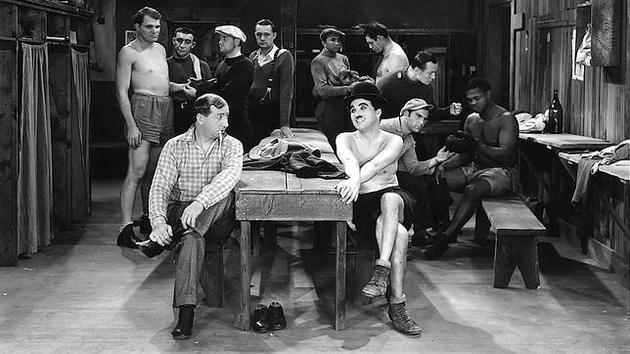
Director: Charles Chaplin
[ 19459002] A timeless film that is dedicated to showing the facts to the viewer, leaving them to make their own evaluations. A harsh criticism of who we really are and what makes us bring out the worst in ourselves.
Although it was made in times of sound cinema, Chaplin resisted submitting to the laws of industry and made a film without spoken dialogue, full of music and gesture poetry. A painful comedy in his reflections on the delivery of love and gratitude.
33. Charada (1963)
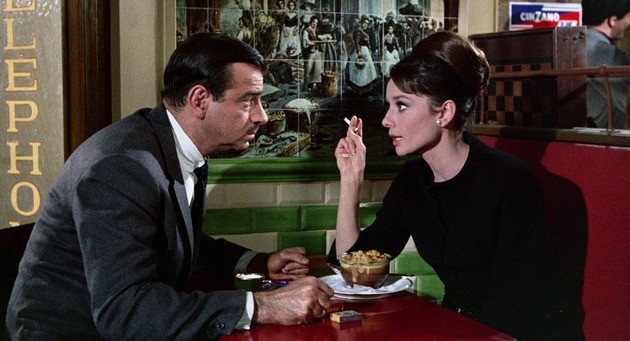
Director: Stanley Donen
gripping tale of intrigue with sophisticated comedy elements resembling a perfect cross between Hitchcock and Lubitsch.
The script is of an impeccable cog, with dialogues of high comedy and a chemistry between the protagonists that serve so that this praise to the artifice and the lie can be considered a perfect film.
34. Two on the road (1967)
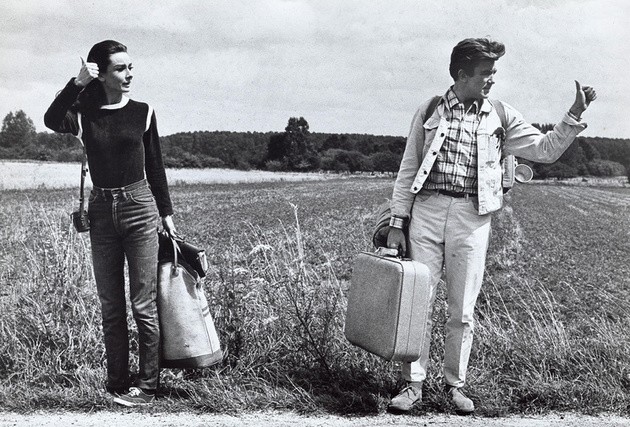
Director: Stanley Donen
[ 19459002] An atypical road movie in which we attend the different stages of the marriage formed by Audrey Hepburn and Albert Finney through their trips around France aboard emblematic cars of the 50s and 60s. [19459003 ]
With a montage that does not follow a chronological order, we are witnessing the progressive wear and tear of their relationship, all told in an elegant and sophisticated way, but that does not avoid putting your finger on the sore spot.
35. Pulp Fiction (1994)
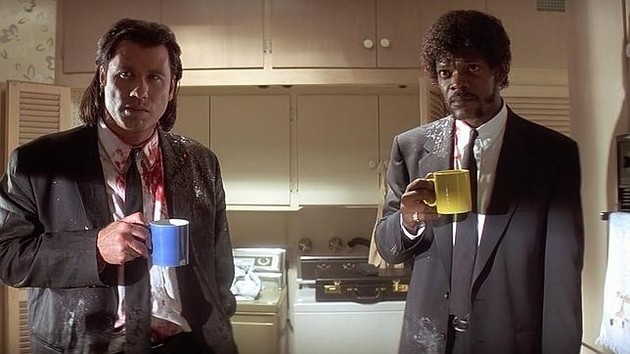
Director: Quentin Tarantino
] Tarantino established himself as a cult filmmaker with this film (second in his filmography), full of dark humor, obscene language and violence that shocked the most orthodox critics.
Proposing a non-linear story full of ingenious dialogues and everyday situations turned into mythical moments, Pulp Fiction revolutionized the cinema of the 90s and became the culmination of its style.
36. Shark (1975)
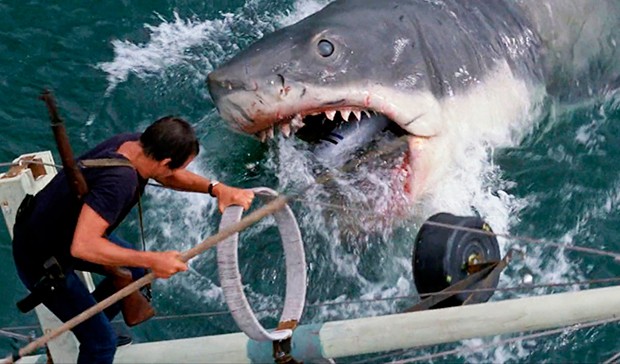
Director: Steven Spielberg
[1945 turning point in the history of cinema: the creation of the blockbuster and a new way of making (and selling) films. Entertaining, traditional, terrifying, made Spielberg one of the most interesting and important directors of his generation.
Total apotheosis of adventure and entertainment cinema, the music of John Williams has become one of the soundtracks par excellence in the history of the seventh art.
37. Schindler’s List (1993)
[1945954]
Director: Steven Spielberg
19459002] The absence of hope marks every frame in this film, which offers a brilliant perspective from both sides of the Holocaust tragedy.
An impressive, thrilling, heartbreaking, and lyrical film about horror and about a complex and contradictory antihero.
38. The Dark Knight (2008)
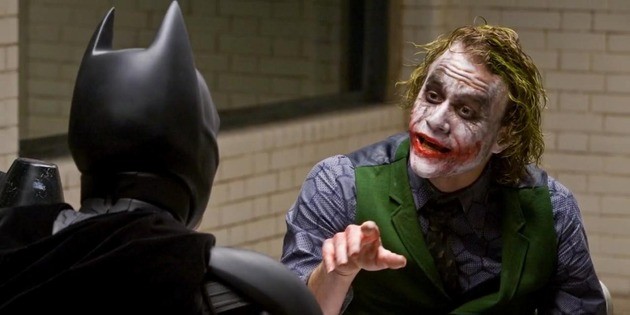
Director: Christopher Nolan
] Heath Ledger’s work as a Joker (posthumous Oscar included) has already passed into the history of cinema as a prodigious exercise in restrained over-performance. Nolan managed to turn a comic into an adult film but full of action and spectacularity, making credible the existence of these two antagonists who are basically two sides of the same coin.
A solid plot with a perfect rhythm and brilliant dialogues that elevate the story almost to the category of a Greek tragedy. A magnificent work that forever changed the focus of film adaptations of comic book characters.
39. The Shawshank Redemption (1994)
Director: 19459 [1945900] 1945900] ] Perhaps the most beautiful prison movie in film history, Darabont’s feature debut was based on a short story by Stephen King about a convict charged with a crime he has not committed.
A story of true friendship that deals with topics such as redemption, brotherhood, hope and, ultimately, striving to live or striving to die.
40. Magnolia (1999)
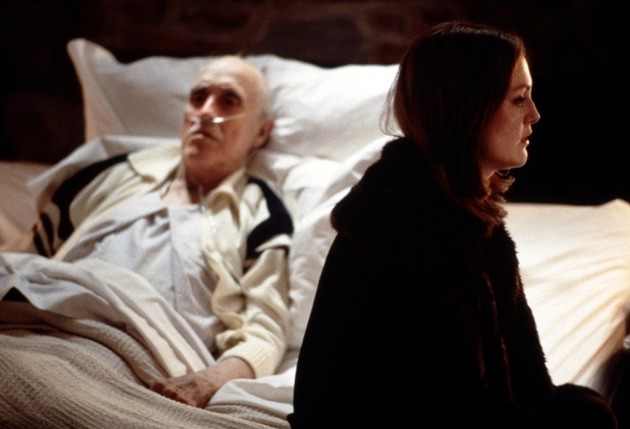
Director: Paul Thomas Anderson
Capital work of contemporary cinema, Magnolia stands out within the brilliant filmography of its director, full of great films. To whom this writes, the later There Will Be Blood (2007) and Phantom Thread (2017) are at the same height and could appear in this list on their own merits.
Through a combination of coincidences, opportunities, human actions, shared means and divine interventions, the lives of a series of people in the Californian valley of San Fernando are woven. From these collective portraits, the author extrapolates moral conclusions in a complex narrative architecture that flows seamlessly and with overwhelming genius.
41. Madison Bridges (1995)
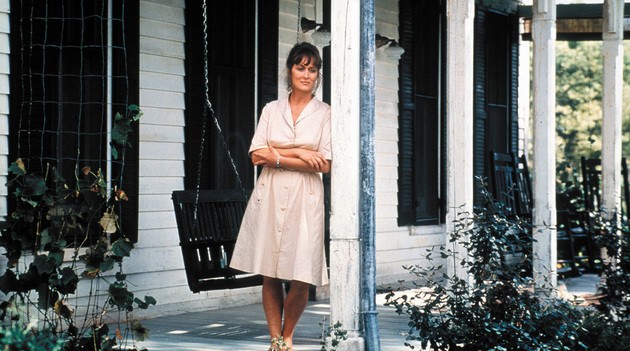
Director: Clint Eastwood
[ 19459002] The Eastwood film is the last great classic melodrama to date. The love story is told from the point of view of Francesca, an unbeatable Mery Streep more contained than ever.
The staging reveals a great love for details, offering a heartbreaking story that speaks of the passage of time and the effect of shared memories. Her heartbreaking emotional climax is pure art; only the Cinema with capital letters is capable of illuminating in such a precise and beautiful way the unsolvable mysteries of the heart.
42. In Search of the Lost Ark (1981)
Director: Steven Spielberg [1945900]
Indiana Jones and The Hunters of the Lost Ark , as it was titled in Latin America, is more than just a movie: it is the birth of an iconic movie figure, Indiana Jones. All its elements are perfectly complemented in an adventure film that draws from the old series that the director saw as a child.
An apparently simple story, full of adventure, humor and love, but that goes beyond a mere adventure story with touches of series B. A masterpiece that wins with each viewing.
43. The Silence of the Innocents (1991)
Director: Jonathan Demme
Cinematic adaptation of the homonymous novel by Thomas Harris, is one of the films that revolutionized the genre in the 90s, establishing itself as the perfect thriller and giving us one of the most iconic psychopaths in film history .
Demme’s amazing work is based on a superb work of actors and an impeccable script, with an anthological staging that appeals to our most primal fears.
44. Casablanca (1942)
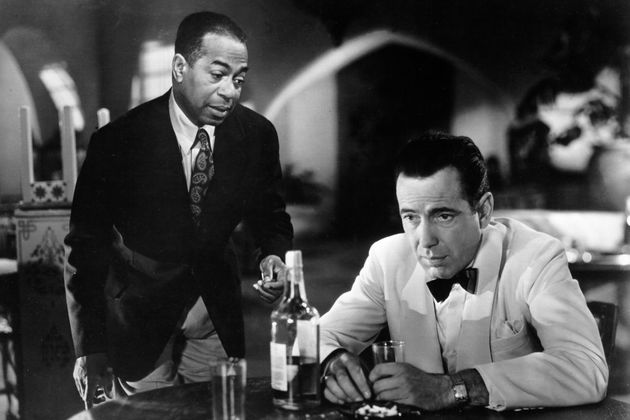
Director: Michael Curtiz
19459002] by many as the classic among the classics, its myth character is above its quality as a film.
Unas memorables interpretaciones, un guión brillantísimo y una inspirada dirección hacen de ella una obra imperecedera que habla sobre un amor imposible en medio de una guerra repleta de clichés y personajes arquetípicos.
45. Belle de Jour (1967)
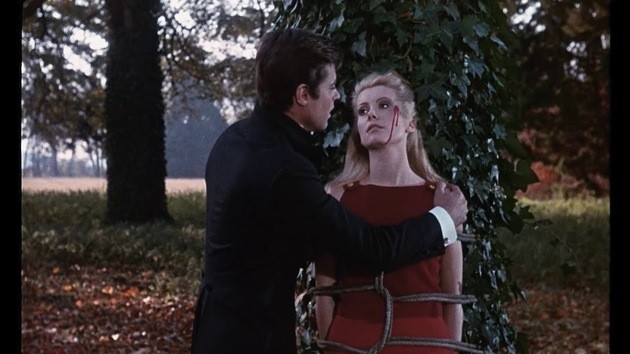
Director: Luis Buñuel
Una película sobre el masoquismo y las fantasías más oscuras que alterna ensoñación y realidad, junto con un sentido del humor sutil pero corrosivo.
Atmósfera irreal y sugerente para una película que escandalizó en su momento y que es una de las más fascinantes y complejas de su director.
46. El resplandor (1980)
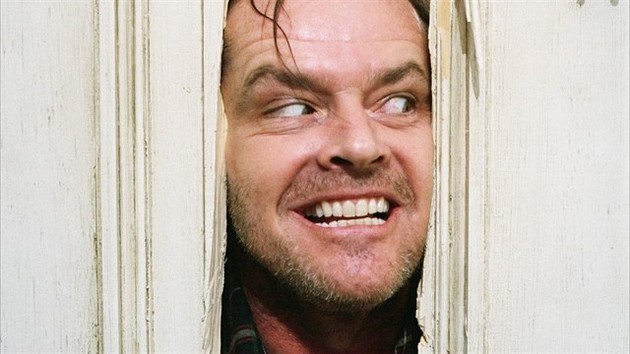
Director: Stanley Kubrick
La obsesión por el detalle de Kubrick alcanza aquí su máxima expresión. Simetrías perfectas, metáforas, mensajes ocultos… la película da para ser revisionada y analizada una y otra vez y encontrar siempre cosas nuevas en ella.
El histrionismo de Jack Nicholson bordea el límite de lo creíble para transmitirnos la progresiva degeneración mental del personaje, pero la cinta se ha convertido en un clásico fundacional del terror moderno.
47. Toro salvaje (1980)
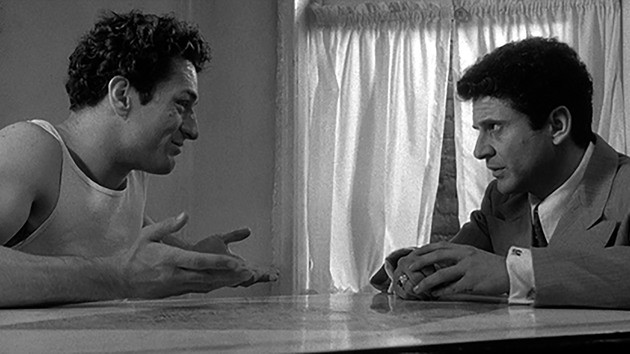
Director: Martin Scorsese
El ring como metáfora del castigo y del sacrificio. Un descenso a los infiernos de un atormentado boxeador que sufre de complejos y sentimientos de inferioridad que le llevan a una inexorable autodestrucción.
Al igual que Taxi Driver , cuenta con un guión de Paul Schrader y constituye un estremecedor relato sobre la soledad y la autodestrucción. Su cualidad casi expresionista y sus momentos de puro lirismo hacen de ella una de las mejores películas de Scorsese.
48. E.T. , el extraterrestre (1982)
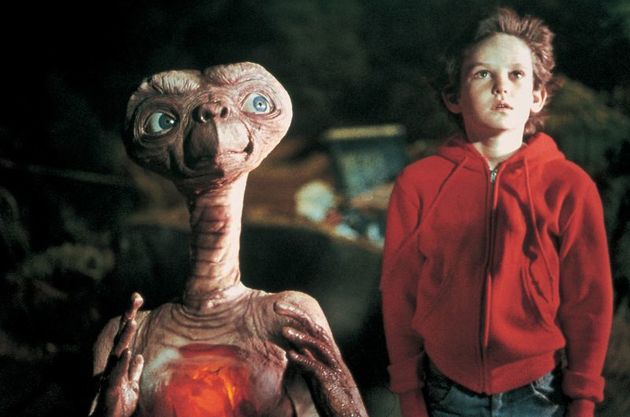
Director: Steven Spielberg
Una de las películas más personales de Spielberg y uno de los grandes hitos de la historia del cine.
Una mirada sublimada de la infancia como escape de una vida gris y solitaria, un canto universal a la amistad y a la búsqueda de la esperanza.
49. El mago de Oz (1939)
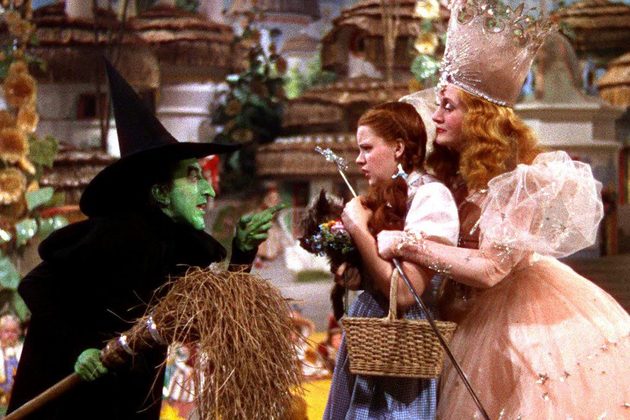
Directores: Victor Fleming, Mervyn LeRoy, King Vidor, George Cukor, Norman Taurog
Mucho más que un cuento de hadas para niños, El Mago de Oz es una de las películas más apreciadas por los críticos y los cinéfilos. El viaje de Dorothy a algún lugar por encima del arcoíris ha estado siempre abierto a múltiples interpretaciones, como ocurre en las mejores obras de ficción.
Musical en esplendoroso technicolor de la Metro Goldwyn Meyer que consagró a Judy Garland, llena de veracidad y emoción en sus escenas.
50. West Side Story (1961)
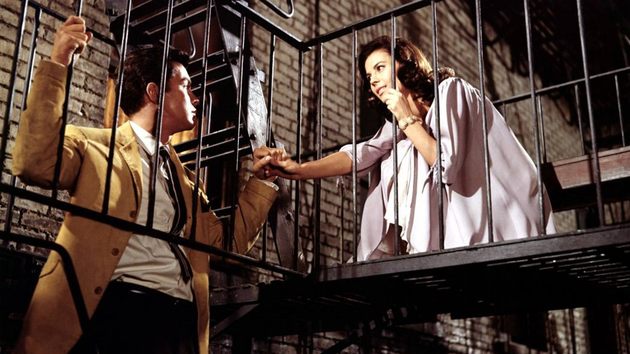
Directores: Robert Wise y Jermome Robbins
Al igual que el Somewhere over the rainbow cantado por Dorothy en El Mago de Oz, el Somewhere entonado por Maria y Tony en West Side Story simboliza ese lugar idílico e irreal donde todo es posible, donde se puede vivir en paz y armonía y el amor es la única esperanza que da sentido a nuestra vida.
El musical por excelencia, la perfecta unión de música, coreografía y escenografía. Una historia de amor atemporal. La intolerancia y el miedo como catalizadores de la tragedia.
51. Toy Story (1995)
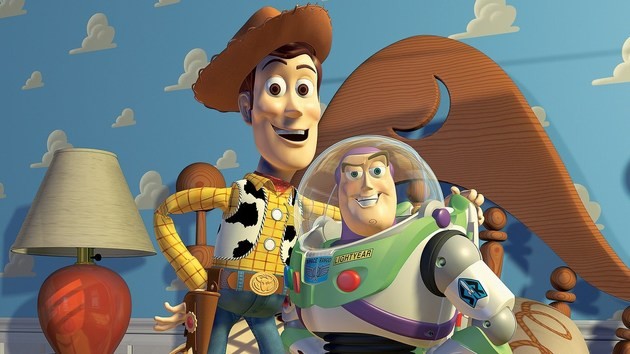
Director: John Lasseter
El primer largometraje de Pixar supuso un cambio radical en la forma de hacer y ver cine de animación.
Un guión perfecto, personajes entrañables, un ritmo endemoniado y un profundo amor por el arte de contar historias hacen de Toy Story un clásico capaz de hacerte reir, llorar y vibrar sin apartar un solo segundo la vista de la pantalla.
52. Alien (1979)
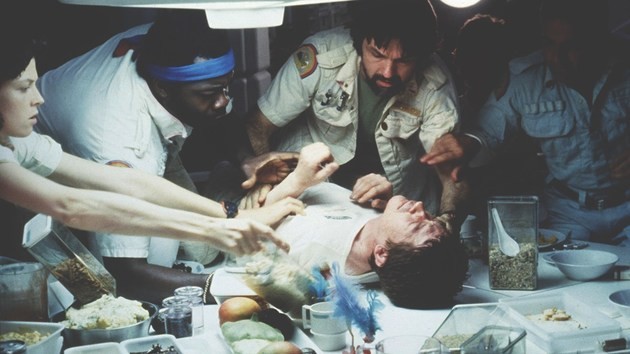
Director: Ridley Scott
Obra maestra de Ridley Scott y un auténtico prodigio de la narración, del diseño de producción y de la música.
Fascinante, oscura, marcó el género de terror y de ciencia ficción para siempre y se mantiene fresca e innovadora a pesar del paso del tiempo.
53. Blade Runner (1982)
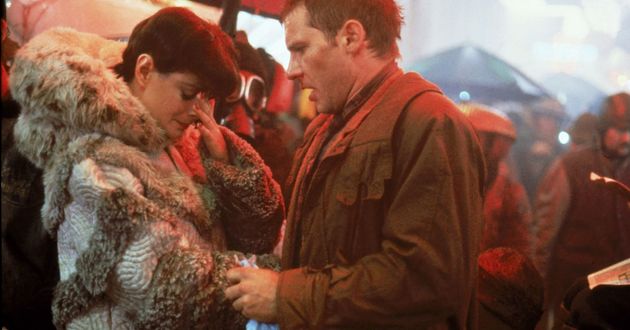
Director: Ridley Scott
Ciencia ficción metafísica para adultos mezclada con el género noir.
Una distopía futurista llena de escepticismo, melancolía y hartazgo vital aderezada por la música de Vangelis.
54. Lo que el viento se llevó (1939)
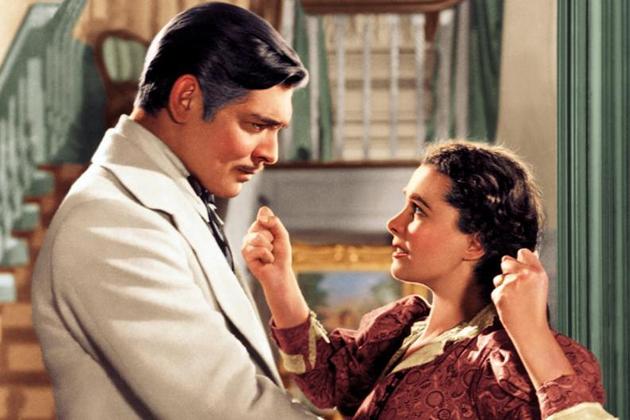
Director: Victor Fleming
Romance, drama épico, aventuras… Todo y más cabe en esta mítica película que todo el mundo debería ver (por lo menos) una vez en la vida. Un legendario melodrama de gran éxito y clamor popular acerca de la fugacidad de las cosas: el tiempo, las oportunidades, el amor.
Scarlett O´Hara y Rhett Butler son, sin duda, dos de los mejores personajes del mundo del cine y Lo que el viento se llevó, un icono de la época dorada de Hollywood y un mito absoluto del siglo XX.
55. La ventana indiscreta (1954)
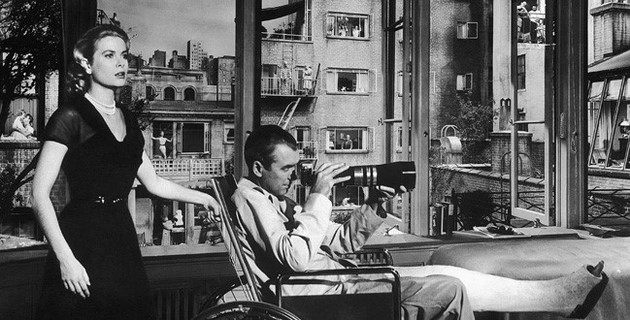
Director: Alfred Hithcock
Una lección de lenguaje y narración cinematográfica, con un brillante manejo del punto de vista.
Obra maestra de minucioso detallismo con un crescendo dramático de infarto. Un juego divertido y enrevesado sobre el voyeur que todos llevamos dentro.
56. Goodfellas (1990)
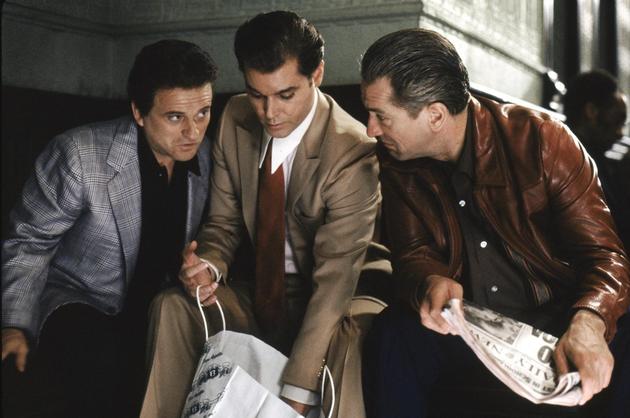
Director: Martin Scorsese
Conocida como Uno de los nuestros en España y Buenos muchachos en Hispanoamérica, esta obra cumbre del cine scorsesiano atesora todas sus obsesiones y logros narrativos y estilísticos.
Su fuerza narrativa y su vanguardismo estético se unen a un ritmo y una intensidad brutal hacen de ella una pieza clave de nuestro imaginario cinematográfico.
57. Crímenes y pecados (1989)
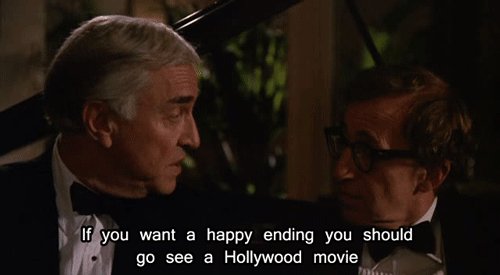
Director: Woody Allen
Una compleja y adulta tragicomedia que narra dos historias paralelas y aparentemente opuestas que convergen en un sincero y devastador final.
La película plantea cuestiones sobre la vida, la muerte, la verdad, la moral y Dios, con un tono más pesimista de lo habitual en el director y poniendo a prueba la ética del espectador.
58. One Flew Over the Cuckoo’s Nest (1975)
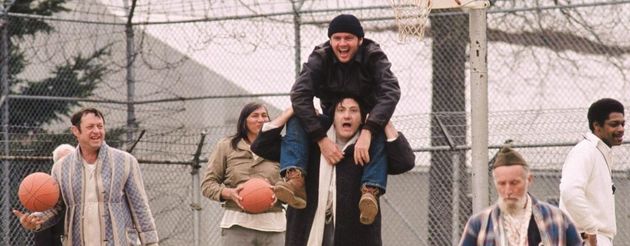
Director: Milos Forman
En España, Alguien voló sobre el nido del cuco ; en Argentina, Atrapado sin salida ; en México, Atrapados sin salida. Basada en la novela homónima de Ken Kesey, destaca especialmente por la que puede ser la mejor actuación de Jack Nicholson.
Una denuncia a los manicomios e instituciones mentales y una oda al despertar a la libertad de los individuos.
59. Matar a un ruiseñor (1962)
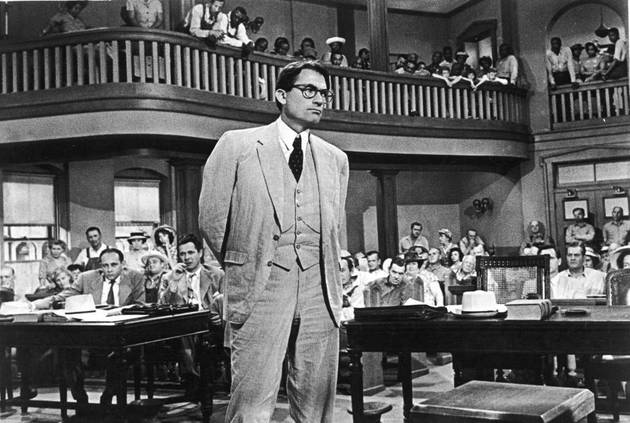
Director: Robert Mulligan
No sólo destaca por una realización sobresaliente y unos interpretaciones magistrales, sino por atrapar desde el comienzo con la capacidad de llevar al espectador a un mundo puramente cinematográfico y, al mismo tiempo, tan real como la vida misma. Por sus valores puramente humanos podría servir como objeto de estudio en cualquier escuela.
El enfoque de los niños ante las incomprensibles actitudes de los adultos es el tema principal de esta película basada en uno de los libros más leídos del siglo XX y ganador del premio Pulitzer. El Atticus Finch encarnado por Gregory Peck ha sido elegido en numerosas ocasiones como el más grande héroe de ficción del cine estadounidense.
60. La noche del cazador (1955)
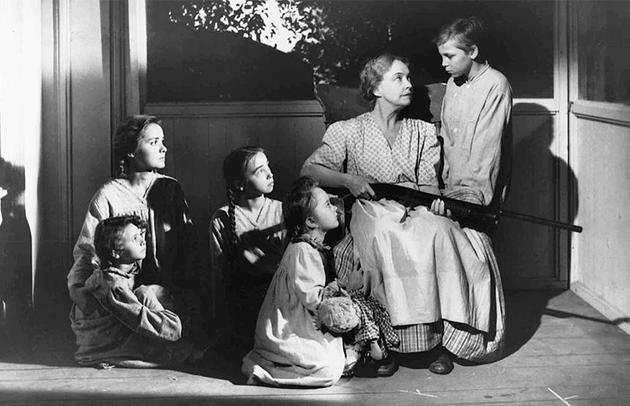
Director: Charles Laughton
Uno de los mejores villanos de la historia del cine en una de las películas más fascinantes y perturbadores que se han hecho sobre el mal, los miedos y las pesadillas infantiles.
Desconfiad de los falsos profetas que se cubren con pieles de cordero pero que en su interior son fieros como lobos. Por sus frutos los conoceréis.
61. Novecento (1976)
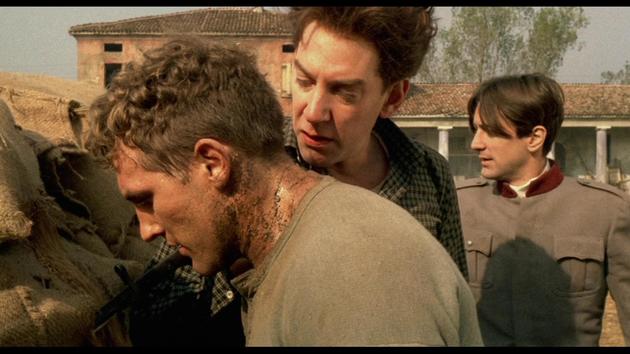
Director: Bernardo Bertolucci
Una de las obras cumbres de Bertolucci y una película épica sobre las convulsas luchas sociales en Italia a través del pequeño microcosmos de una hacienda rural de la región de Emilia.
Su poder narrativo, estético e ideológico viene acrecentado por su mastodóntica duración de más de 5 horas.
62. Sunset Boulevard (1950)
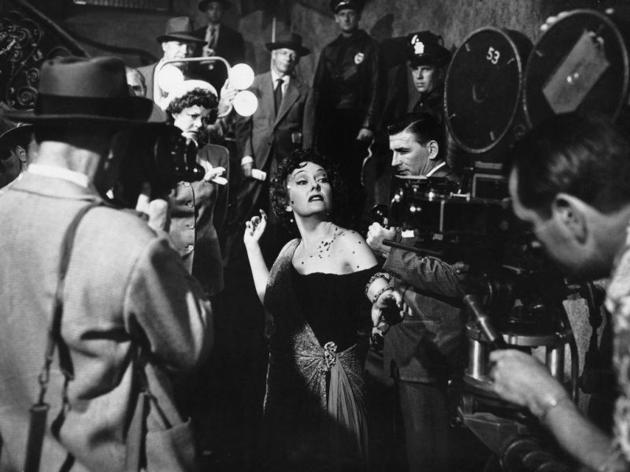
Director: Billy Wilder
Norma Desmond encarna a una estrella del cine mudo que está en decadencia a causa de la aparición del sonoro. Discurso metalingüístico y crítica mordaz de la industria cinematográfica, esta película, como las grandes divas, no envejece.
Soy grande. Son las películas las que se han hecho pequeñas.
63. Lawrence de Arabia (1962)
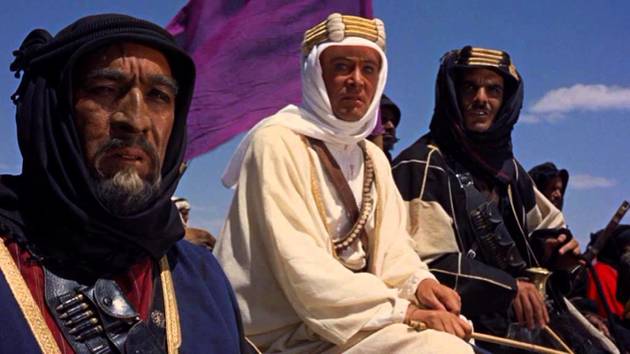
Director: David Lean
El cine como espectáculo definitivo. Una experiencia sensorial y psicológica inigualable, obra de un genio como David Lean.
Película íntima, excesiva, agotadora, épica, bella y terrible al mismo tiempo.
64. Doce hombres sin piedad (1957)
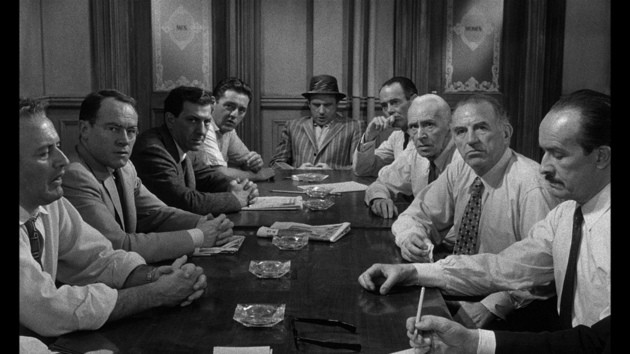
Director: Sidney Lumet
Excepto el prólogo y el epílogo, prácticamente toda la película transcurre en la sala de deliberación, donde se va creando una sensación de claustrofobia acorde con los personajes.
Los doce miembros del jurado representan al ser humano en general. Al final, los prejuicios se desmontan y prevalece la verdad y la justicia.
65. ¡Qué bello es vivir! (1946)
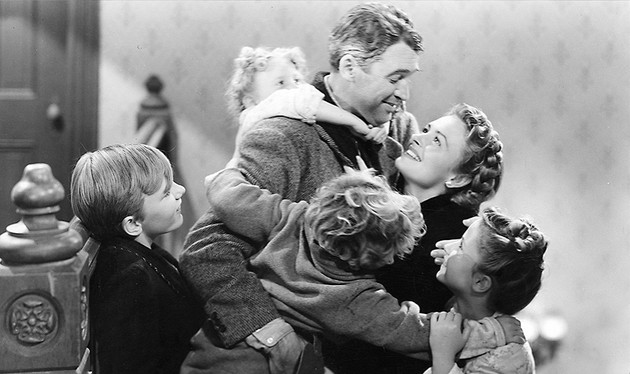
Director: Frank Capra
Obra de arte inmortal considerada a día de hoy como el perfecto cuento navideño, pero que esconde un implacable relato de un perdedor nato y un estremecedor mensaje existencialista.
Cine catártico, humano y lírico donde destaca un James Stewart inolvidable.
66. Rocco y sus hermanos (1960)
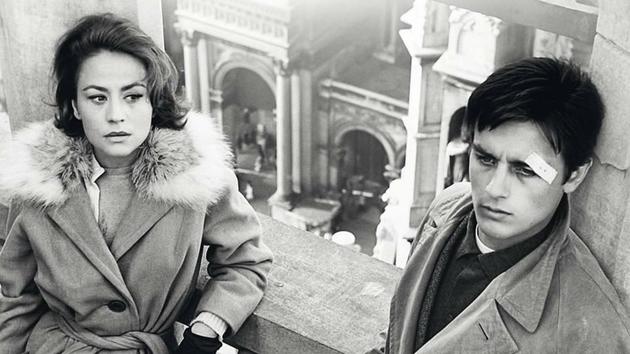
Director: Luchino Visconti
El neorrealismo se da la mano con el melodrama más desaforado y una catarsis propia de la tragedia griega en esta lírica historia acompañada por la música de Nino Rota.
Un vasto fresco social y psicológico sobre la emigración de una familia siciliana típica al Milán norteño, burgués e industrial. La desintegración de la familia y la inadaptación a la nueva cultura urbana, indiferente y hostil al mismo tiempo.
67. El exorcista (1973)
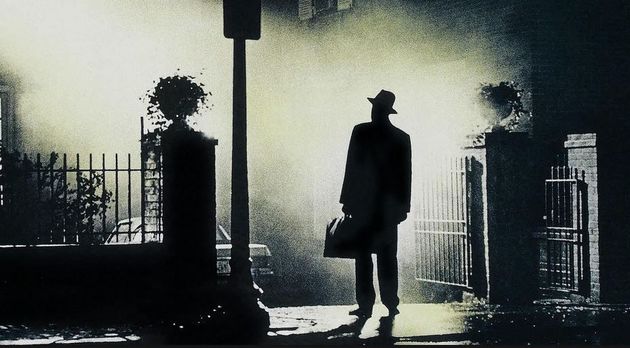
Director: William Friedkin
La mayor fuerza de este drama de terror reside en los miedos que surgen de nuestro interior, así como en la eterna lucha entre el bien y el mal. Posiblemente la película de terror más influyente de la historia del cine.
Magnífica puesta en escena, atmósfera enfermiza y opresiva y una dirección que huye de los efectismos gratuitos y bucea en la psicología de los personajes.
68. El tercer hombre (1949)
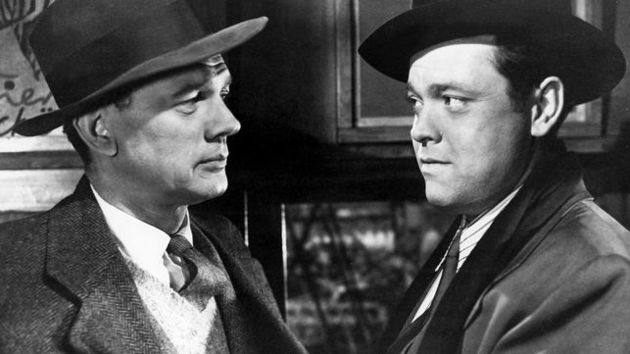
Director: Carol Reed
Una de las producciones británicas más prestigiosas de todos los tiempos que sigue sorprendiendo a cada visionado.
Misterio y suspense en una historia brillante y ágil llena de personajes desencantados.
69. Star Wars: Episodio IV – Una nueva esperanza (1977)
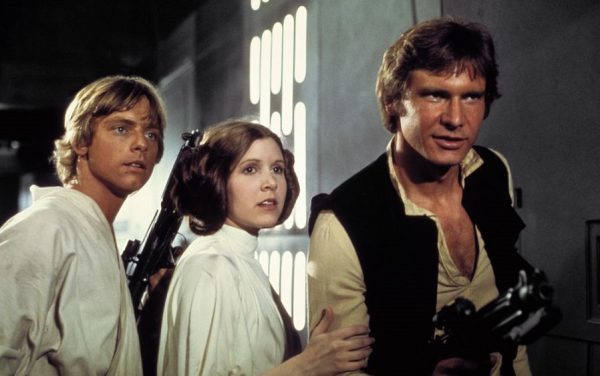
Director: George Lucas
El origen de un mito. Una fantasía situada en una galaxia muy, muy lejana que supondría un punto de inflexión en la historia del séptimo arte… y en la forma de explotar el merchandising como forma de negocio asociado al cine.
Bajo el aspecto de una sencilla historia de aventuras y fantasía, su magia y su épica han hecho que forme parte del imaginario colectivo de varias generaciones.
70. North by Northwest (1959)
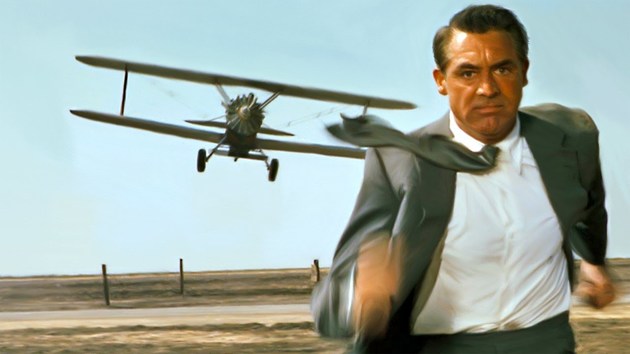
Director: Alfred Hitchcock
Conocida en España como Con la muerte en los talones y en Hispanoamérica como Intriga Internacional, esta maravillosa película de la etapa americana del maestro Hitchcock sentó la base de muchos blockbusters de acción modernos.
Una de las películas más perfectas y refinadas de su autor, una sinfonía perfecta de apariencias llena de escenas memorables y, sobre todo, una excitante cinta de aventuras.
También te podría interesar:
- Las mejores películas de acción que te dejarán pegado al sofá
- Las 107 mejores películas de terror de la historia
- Las mejores películas de acción que te dejarán pegado al sofá
- 10 películas cuyo final alternativo fue mejor que el original
- Las 11 películas de zombies más destacadas
- Conoce las 30 mejores películas de comedia
- Todas las películas Marvel fuera del UCM (guía completa)
